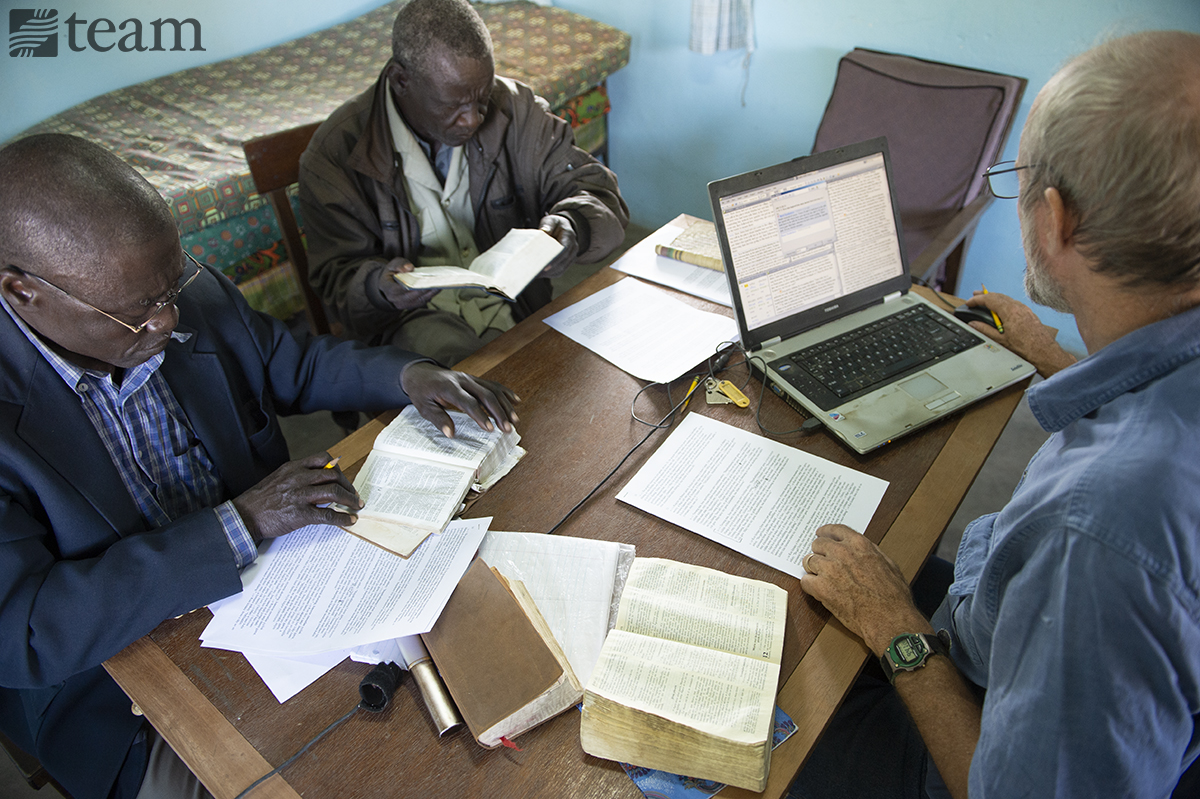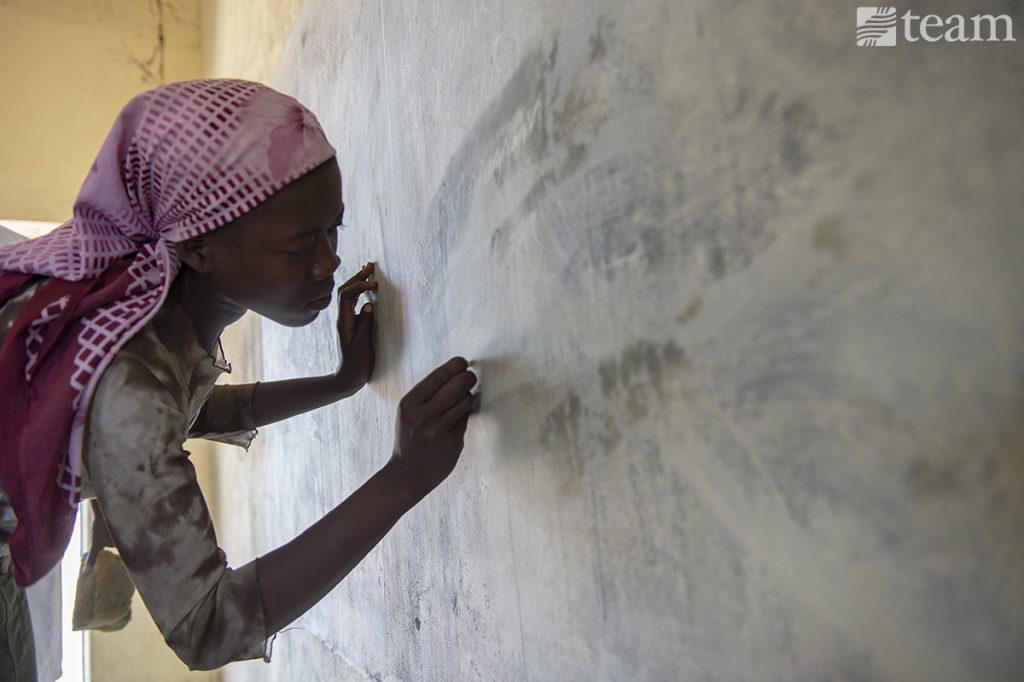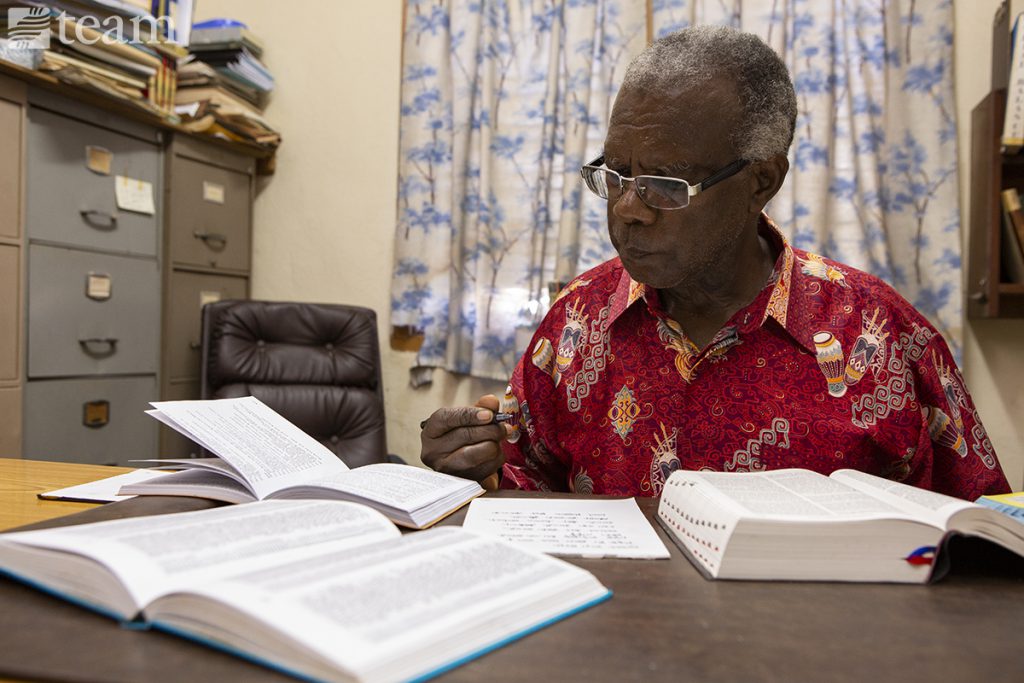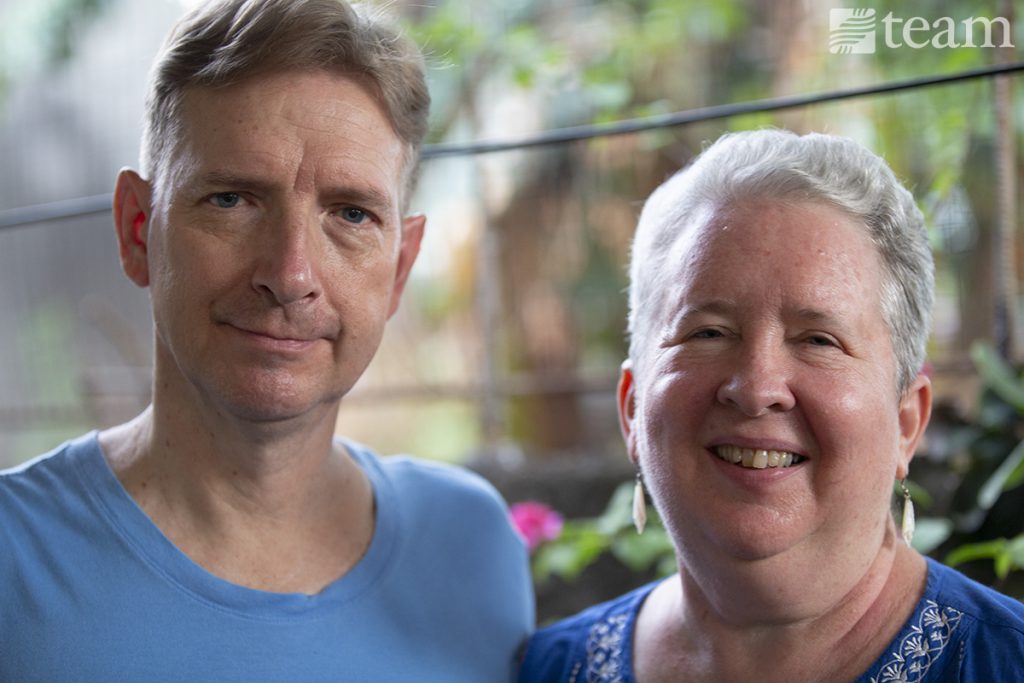
Ministry Updates
What Does a Bible Translator Do When. . .
January 29, 2020
by Heidi Chupp

The journey of a TEAM Bible translator begins long before the first word of Scripture is written down. It includes undergoing extensive training, cultivating cultural sensitivity and navigating the possibilities of a difficult climate or an unfriendly reception.
And once the translation work begins, each language project has unique challenges all along the way. For example …
… After 10 long years, still searching for just the right word for “hope.”
… Discovering two very different words for “God.”
… Realizing that your recommendations as translation consultants don’t go over too well with the translation team.
So, what’s a Bible translator to do in the face of these challenges?
Hope: Waiting Expectantly
Since you’re reading this blog post, you probably grew up in a literate society where you made sense of the world from things like books and road signs and websites. You have an awareness of other cultures and viewpoints.
But none of that awareness is reality for most Kwong people, who live in the African nation of Chad. Most haven’t grown up reading.
As Mark and Diane Vanderkooi have discovered, the Kwong language reflects that mindset: nearly zero abstract terms.
This meant that some key biblical terms were best translated and understood using the name of a body part.
Faith? “Putting your chest.”
Forgiveness? “Cooling off your stomach.”
Patience? “Taking your head.”
But when it came to translating the word “hope,” Mark and Diane were stumped.

In some cultures, words for abstract ideas are difficult to translate. So translators have to come up with alternatives that still convey the same meaning.
They spent 10 years searching for an adequate term and coming up with phrases that worked, but just didn’t fully resonate. Then Mark and the translation team came to 1 Peter 1:3 — “God has given us a new birth into a living hope through the resurrection of Jesus Christ from the dead” (NIV).
As they explored this verse, they began to see a distinction between hope viewed as something a person does, and the beautiful view of hope that the verse communicated: something that comes to a person.
And so today, “hope” in Kwong is expressed “waiting expectantly for the good things to come.”
Help from the Holy Spirit
Simson Dowansiba learned on the job when he joined the team translating Scripture into his mother tongue of Hatam. He learned to carefully read through drafts and discuss options for clearer wording, all the while preserving the original meaning.
Then the team faced a difficult decision. The Hatam culture, located in Papua, Indonesia, did not have its own concept of God. And there were no simple alternatives.
There was the commonly accepted, well-known term borrowed from the Indonesian Bible — Allah — which communicated God as all-powerful, eternal Creator of heaven and earth.

As Simson’s team translated the Bible, they realized they didn’t have a word that fully described who God is. Fortunately, they had language consultants to guide them.
But as the team continued to study the Scriptures, they uncovered another aspect of God’s character: that of the Leader whom a person chose to follow. It was a much more relational concept. Tuhan, another borrowed word, was more accurate for this interpretation.
Which word should the team use?
“We had an opportunity to go to some translation workshops,” Simson says. “We were taught, if you don’t have a word that is exact, use a word that is closest … to the one you’re trying to translate.”
As they discussed terms, the team members came to a conclusion: Both words were necessary.
For some verses, the word Allah was sufficient to reflect the original language and intent. But some passages required the term “Lord God,” and for these they used Tuhan Allah.
Today the entire Hatam Bible has been translated. Simson is grateful for his training, but he’s most thankful for the supernatural help he’s received.
“From the human standpoint, this is a very difficult job,” Simson says. “It was the Holy Spirit that was helping me to choose the right words to give an accurate translation.”
Nosey Partners — and Servants
“So why did you choose this particular word to translate the word ‘parable’?”
“If you translate the word ‘angels’ using a word meaning ‘messengers,’ do you need to say whose messengers they are, and whether they are human or spirit messengers?”
Keith and Grace McCune ask questions like these all the time.

Language consultants Keith and Grace McCune see themselves as servants to translation teams. Their efforts have helped bring Scripture to language groups throughout the world.
“We’re being nosey partners,” says Grace.
That’s because they work as translation consultants in Asia, coming alongside Bible translation teams to help them render the Scriptures into the clearest and most accurate translations possible.
Sometimes the interaction is straightforward and smooth. And sometimes they disagree.
Grace and Keith encountered this when they were working through the book of Acts with one team and discovered multiple possibilities for translating the term “Christ.”
One option was to use the transliteration that already existed in this language (krista), but it conveyed only the form and carried no meaning. They could use the translation of the Greek ‘Anointed One.’ Or they could go with the Hebrew “Messiah” to create a connection with the Old Testament prophecies.
The discussion lasted for days.
Grace and Keith recommended going with ‘God’s chosen ruler’ — but ultimately, the translators opted to use krista, along with a footnote.
And the McCunes accepted their decision.
“The consultant is kind of a servant,” Keith explains.
“We are not the bottom line,” Grace adds. “We ask, we advise, we suggest — and then they make the call.”
‘This is for Everybody’
Bible translation is indeed full of daunting tasks. But those who say “yes” to these challenges have their sights set beyond the challenges: to help bring God’s love to some of the 200 million-plus people who still need the Scriptures in their mother tongue.
Besides, Keith and Grace say, God was the very first Bible translator.
“The Gospels — when they were first written — are already translations,” says Grace. “Because Jesus spoke in Aramaic, and then it was written down in Greek.”
“God is all about translation,” Keith says.
Grace agrees. “He encourages us to do it by saying, ‘See? I did it. You go ahead. This is for everybody.’
Related articles


